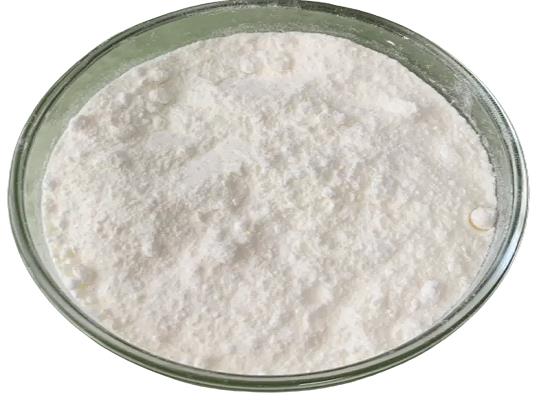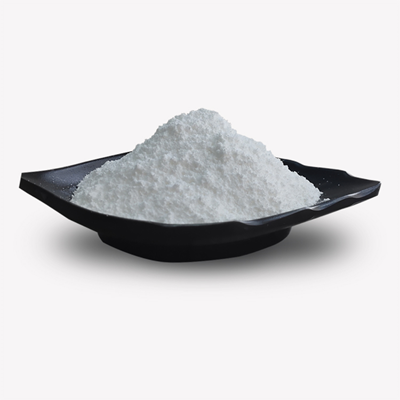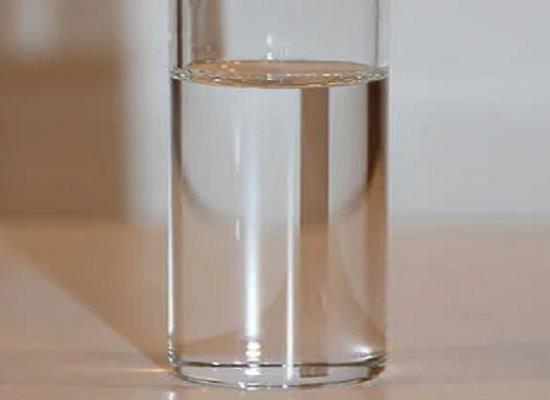Spermidine Trihydrochloride: Healthy Effects, Applications in Wound Healing and Toxicological Assessment
General Description
Spermidine trihydrochloride has demonstrated various health benefits, including inducing autophagy, extending lifespan, exhibiting anticancer effects, and providing cardiovascular protection. It promotes longevity by triggering autophagy and enhancing mitochondrial function. Additionally, it has shown potential in preventing and reducing the incidence of liver cancer and fibrosis. Spermidine trihydrochloride intake has been linked to lower cancer-specific mortality and decreased cardiovascular disease-induced mortality. In wound healing, Spermidine trihydrochloride-based carbon quantum dots-NO have been found to promote angiogenesis, cell migration, and wound healing. Toxicological assessments have concluded that spermidine trihydrochloride is non-genotoxic and safe for consumption, with no observed adverse effects even at high doses.

Figure 1. Spermidine trihydrochloride
Healthy effects
Spermidine trihydrochloride has shown numerous health benefits, particularly in relation to autophagy, lifespan extension, anticancer effects, and cardiovascular protection. Autophagy, the process of catabolizing intracellular components, plays a vital role in maintaining cellular energy balance and survival under stress conditions. Spermidine, as an autophagy inducer, has been found to have various health effects. Firstly, it has been extensively reported to extend lifespan in yeast, flies, worms, and even human immune cells. It triggers autophagy by inducing the deacetylation of histone H3 in chromatin, leading to enhanced longevity. In mice, oral Spermidine trihydrochloride has been shown to enhance cardiac autophagy, mitophagy, and mitochondrial respiration, resulting in extended lifespan. Studies have also suggested a potential role of spermidine in human longevity. Furthermore, Spermidine trihydrochloride exhibits anticancer effects by enhancing the function of memory lymphocytes to remove cancer cells and reducing the incidence of liver fibrosis and liver cancer. It can also regulate macrophages to inhibit colorectal cancer growth. Epidemiological studies have shown that higher spermidine intake is associated with lower cancer-specific mortality. In terms of cardiovascular protection, Spermidine trihydrochloride intake has been negatively correlated with cardiovascular disease-induced mortality. Supplementation of Spermidine trihydrochloride has been shown to prevent cardiac aging, improve cardiac function, elasticity, and mitochondrial function in aged mice. It has also demonstrated positive effects in delaying hypertensive heart disease development and reducing arterial blood pressure in animal models. Overall, Spermidine trihydrochloride exhibits promising health effects through its ability to induce autophagy, leading to lifespan extension, anticancer effects, and cardiovascular protection. Further research, especially epidemiological studies, is needed to fully understand its effects on human lifespan and to explore its potential therapeutic applications. 1
Applications in wound healing
Spermidine trihydrochloride-based carbon quantum dots-NO (CQDs-NO) have been developed as a nitric oxide donor for wound healing. The CQDs-NO were prepared using a hyperthermia-intermittent ultrasonic method and were tested for their healing effects on deep partial-thickness burn wounds in rats. The biocompatibility of CQDs-NO was tested, and it was found that a concentration of 1 μg/mL and 5 μg/mL showed no cytotoxicity. Moreover, CQDs-NO could release NO when co-cultured with cells or glutathione peroxidase. The scratch assay, Western blotting, histology, and transcriptome sequencing revealed that CQDs-NO promotes the biological processes of angiogenesis, cell-substrate adhesion, extracellular matrix organization, cell migration, and wound healing in human umbilical vein endothelial cells (HUVEC). Additionally, CQDs-NO promoted wound healing of deep partial-thickness burn by enhancing vascularization, matrix deposition, as well as regulating the inflammatory reactions of wounds. In conclusion, Spermidine trihydrochloride-based carbon quantum dots-NO have potential applications in promoting wound healing. 2
Toxicological assessment
A comprehensive toxicological assessment was conducted to evaluate the safety of spermidine trihydrochloride produced using an engineered strain of Saccharomyces cerevisiae. Spermidine is a naturally occurring polyamine found in various foods and is also synthesized in cells and by the intestinal microbiome. However, limited information regarding the potential toxicity of spermidine-3HCl was available in the public literature. To address this, rigorous tests were conducted following authoritative guidelines and good laboratory practices (GLP). In vitro genotoxicity assays, including bacterial reverse mutation and mammalian micronucleus assays, were performed, demonstrating that spermidine trihydrochloride is non-genotoxic. Furthermore, a 90-day oral toxicity study was conducted in rats, where spermidine trihydrochloride was administered through the diet. No adverse effects were observed even at the highest tested dose of 12500 ppm, equivalent to 728 mg/kg bw/day for males and 829 mg/kg bw/day for females. Based on these results, the subchronic no observed adverse effect level (NOAEL) for spermidine-3HCl is determined to be 728 mg/kg bw/day. Therefore, this toxicological assessment supports the safety of spermidine trihydrochloride as a dietary source of spermidine. 3
Reference
1. Zou D, Zhao Z, Li L, et al. A comprehensive review of spermidine: Safety, health effects, absorption and metabolism, food materials evaluation, physical and chemical processing, and bioprocessing. Compr Rev Food Sci Food Saf. 2022;21(3):2820-2842.
2. Tang T, Liu Y, Wang P, et al. Carbon quantum dots as a nitric oxide donor can promote wound healing of deep partial-thickness burns in rats. Eur J Pharm Sci. 2023;183:106394.
3. Chrysostomou PP, Freeman EL, Murphy MM, Pereira R, Esdaile DJ, Keohane P. A toxicological assessment of spermidine trihydrochloride produced using an engineered strain of Saccharomyces cerevisiae. Food Chem Toxicol. 2024;184:114428.
Related articles And Qustion
Lastest Price from Spermidine trihydrochloride manufacturers

US $0.00-0.00/KG2025-09-12
- CAS:
- 334-50-9
- Min. Order:
- 1KG
- Purity:
- 98
- Supply Ability:
- 1000KG

US $0.00-0.00/kg2025-08-20
- CAS:
- 334-50-9
- Min. Order:
- 1kg
- Purity:
- 99%
- Supply Ability:
- 1



